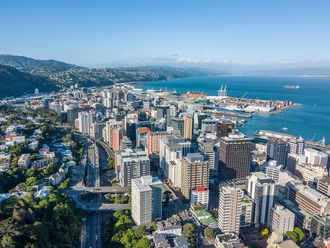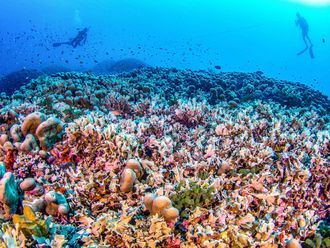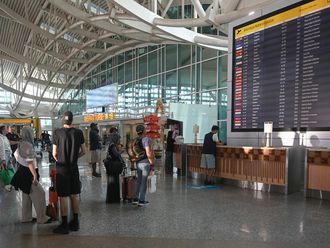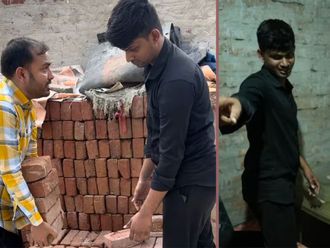Tokyo: A video emerged on Wednesday showing a volleyball coach repeatedly slapping a schoolboy — just days after Tokyo was awarded the 2020 Olympics — in the latest example of brutality to tarnish Japanese sport.
A short clip posted on YouTube and other video-sharing sites showed the teacher at Hamamatsu Nittai Senior High School in central Japan smacking the student’s face at least 13 times in 16 seconds. It was authenticated by the school.
The episode was captured on a mobile phone by another student during a practice game in Gifu, northwest of the city, on Sunday. By mid-afternoon on Wednesday, it had garnered some 1.6 million viewings on YouTube.
“Don’t joke around, kid! Do you understand? You’re stupid,” the teacher yells in the video as he repeatedly slaps the child’s face.
According to the school, the teacher has admitted the physical abuse of the second-grader, saying: “I wanted to shake him up, but I went about it the wrong way”.
Students in Japan are 16 or 17 years old in second grade of high school.
Another student beaten
Toshitaka Shiozawa, assistant principal of the school, said the 41-year-old teacher had also beaten another student on the same day. He declined to reveal the teacher’s name.
Neither student suffered any lasting injuries in the attacks, Shiozawa said, adding the school was considering disciplining the teacher as “we regard the act as corporal punishment”.
The school held an emergency meeting with the parents of students in the volleyball team on Tuesday night, at which the teacher and the school principal apologised for the incident, Shiozawa added.
In May last year, the same teacher also slapped a student’s face, causing a nosebleed, but the school did not take any punitive measures “because the student did not complain,” he said.
In a separate case in western Japan, nearly 70 junior high school students were left with injuries on their feet after being ordered by their teachers to run barefoot, local media said.
Punishment
The students were forced to run up to 1.2 kilometres over ground heated up by strong sunshine because they were late for an exercise at a sport festival at Suma Gakuen junior high school in Kobe, news reports said.
Immediate confirmation of the reports was not available.
Japan banned corporal punishment in schools after World War II, but it remains far from uncommon, particularly in sports education, despite a number of high-profile cases.
In December, a teenager killed himself following repeated physical abuse from his high school basketball coach in Osaka, western Japan.
Earlier this month, world judo champion Shohei Ono was suspended from his university for physically abusing junior members of the judo squad.
Japan’s judo community was rocked in January when it emerged the coach of the national women’s team was found to have beaten athletes, sometimes using a bamboo sword, calling his charges “ugly” and telling them to “die” in the run-up to the London Olympics.
The latest incident came less than two weeks after Japan was awarded the right to host the 2020 Olympic Games, and followed the announcement that the government was to create a sports agency to boost elite athletes’ performance.
Mieko Ae, professor and sports psychologist at Tokyo Women’s College of Physical Education, said many coaches in Japan believe physical abuse can improve students’ performance. “In order to get rid of sports abuse, we have to change this way of thinking and if necessary, we should consider introducing measures on those who break the rules,” Ae said.
“Extreme sports bullying is not discipline, it’s a crime,” she said. “It’s time to remove all violence from sports.”












